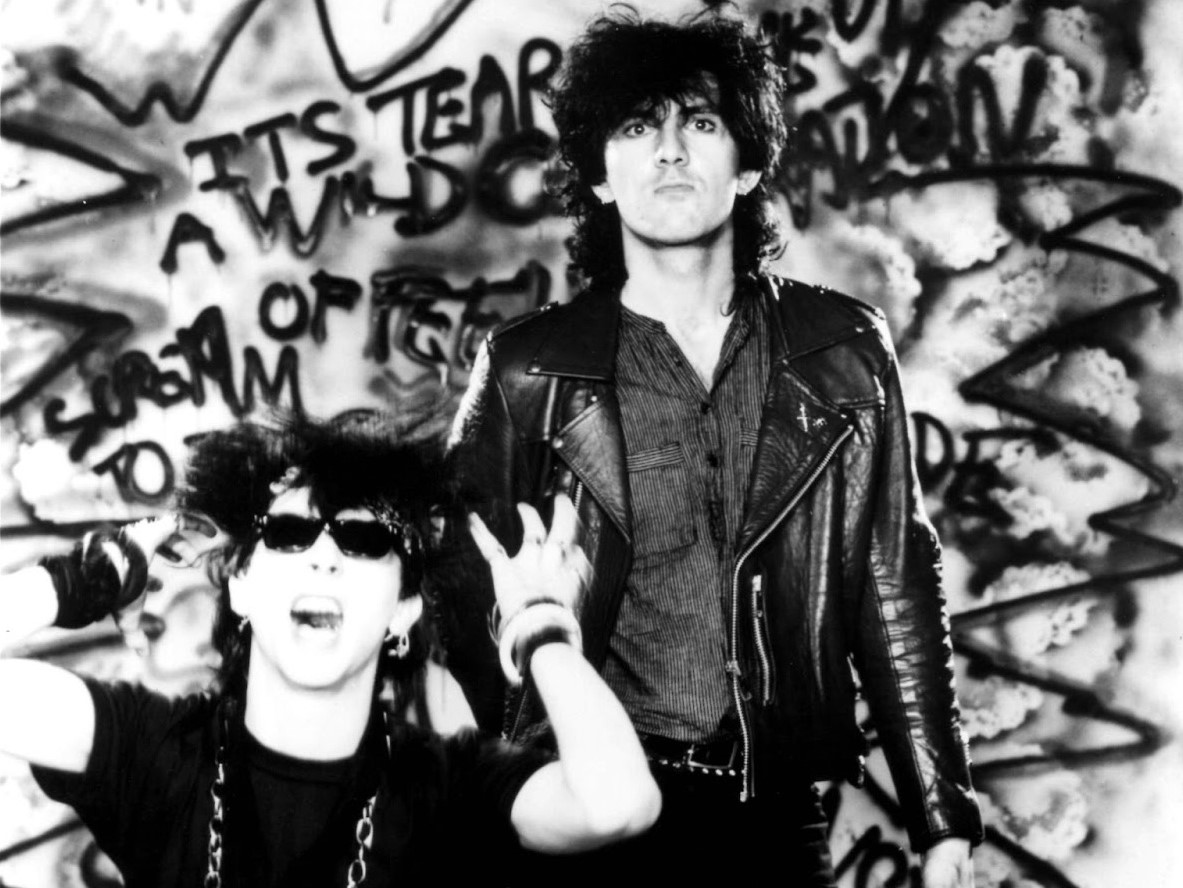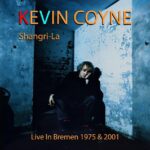
By Patrick Clarke
If there’s one thing I’m trying to prove in my new book Bedsit Land, it’s that Soft Cell were far more than just a pop band. Though best known today for their string of hits, most notably ‘Tainted Love’, there was a radicalism to Marc Almond and Dave Ball’s work in the 1980s that’s often overshadowed by their commercial success. Within just a few years, from their debut EP in 1980 to the final album of their first run in 1984 (they’d be back in the new millennium), they embraced influences from their radical art school background, the genre-spanning hedonism of New York nightlife, the seedy underbelly of Soho’s sex clubs, the esoteric madness of the avant-garde, French chanson, Spanish flamenco and more. For me, then, the best route into what made Soft Cell special, is through deep cuts like these.
METRO MRX
The Mutant Moments EP is a fascinating document of Soft Cell’s earliest years. Marc Almond and Dave Ball had just met at Leeds Polytechnic, heavily influenced by tutors like the countercultural provocateur Jeff Nuttall and the radical sonic experimentalist John Darling, and were encouraged to push boundaries at every turn. This combined with a local music scene that was growing ever more flamboyant and strange in reaction to the often hostile city outside, as well as with the first influx of affordable synthesisers for working class musicians and the birth of independent punk record labels following Buzzcocks’ New Hormones and Throbbing Gristle’s Industrial. In this febrile primordial soup, Almond overheard Ball’s mad synth experiments, and asked him to soundtrack his equally mad performance art pieces. The collaboration then led to this deeply weird, self-released collection of proto-synth pop on which ‘Metro MRX’ is the highlight. Originally written (and sung) by Ball, its anti-consumerist messaging is charmingly direct, but its cold, stark, sound is completely radical.
Tainted Love (Daniel Miller Demo)
‘Tainted Love’ is hardly a deep cut. A pop goliath that would eventually become a weight around Soft Cell’s neck, it forced them out of the underground and into the spotlight, meaning that their experimental instincts would from now on have to contend with the pressures of the hit machine, a tension that would eventually tear the band apart. This early demo version, however, is a fascinating treasure. It was recorded with Daniel Miller, himself a synth pioneer with The Normal and his label Mute, who would eventually cede production to Mike Thorne, the man who would go on to helm Non-Stop Erotic Cabaret and The Art of Falling Apart, and who beefed up ‘Tainted Love’ into the second-biggest selling single of 1981. In Miller’s hands, however, ‘Tainted Love’ is lighter on its feet, the keyboards churning and hypnotic. It’s too stark, you imagine, to garner the kind of mainstream praise that Thorne’s version did, and yet it still possesses the same pop brilliance at its core. It’s a snapshot of what might have been were this the final version – Soft Cell free to continue as cult pop pioneers, rather than megastars.
Martin
Though it first appeared to the public on Soft Cell’s oft-overlooked second LP The Art Of Falling Apart, ‘Martin’ – inspired by George A. Romero’s 1977 horror film about a troubled young man who believes himself to be a vampire, favourite student viewing for Almond and Ball – had been floating around in demo form from Soft Cell’s earliest sessions. The final version is the definitive, though, Soft Cell at their most epic and flamboyant. Ball, frustrated by the ‘dink dink’ jibes that greeted his playing on ‘Tainted Love’, beefs up his synths and unspools a ferocious pummel of an instrumental. Almond luxuriates in all the space it affords him, embracing peak gothic theatricality. It’s also an intriguing transitionary point between the band’s early pop success, and the gloves-off sonic madness that was soon to follow.
Ghost Rider (Live In Los Angeles) – Feat. Clint Ruin
In a post-Pet Shop Boys, post-Eurythmics, post-Yazoo world, it’s easy to forget that before Soft Cell, there was really no such thing as a British synth duo. For inspiration in their early years, Almond and Ball looked stateside, primarily toward the work of Alan Vega and Martin Rev of Suicide. Towards the end of Soft Cell’s first run, where the ecstasy-fuelled abandon of Non-Stop Erotic Cabaret had long since devolved into a darker, nihilistic lifestyle defined by heroin, speed, cocaine and acid – they paid tribute to that early influence by incorporating a demented cover of Suicide’s ‘Ghost Rider’ into their live set. By now their circle included many figures from music’s stranger fringes, the likes of Psychic TV, Test Dept, Coil, Nick Cave and JG “Foetus” Thirlwell, and it’s clear to see how those artists’ grubby provocation was rubbing off on Soft Cell. Thirlwell appears here under his Clint Ruin pseudonym to add feral yelps and yowls, and regular collaborator Gary Barnacle provides spleen-shaking squalls of saxophone. Almond, meanwhile, postures like a demented Elvis. This is Soft Cell at the absolute peak of their powers.
Mr. Self Destruct
Amid an acrimonious fall out with their label Phonogram, Soft Cell’s third LP This Last Night… In Sodom received next to no promotion. Not that Almond and Ball would have been around to field any interview requests – they had already split up by the time it was released. Finally unencumbered by obligation to the industry, with ‘Tainted Love’ long in the rear view mirror, on this record they were free to indulge the chaotic, freewheeling energy that makes it one of the 1980s great overlooked masterpieces. The emotional blast of an opener, ‘Mr. Self-Destruct’, is aptly titled – one last kick against the pricks, a bullet train careening off track, a downed plane plummeting to earth in a fiery tailspin. Less than four years had elapsed between this record and the Mutant Moments EP, but the creative strides made in that time remain utterly staggering.




